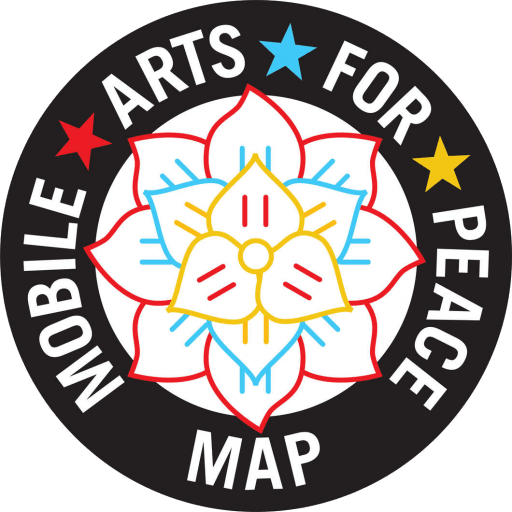Dr Sarah Huxley
Central to the Mobile Arts for Peace (MAP) research project, is the exploration of how cultural art forms can catalyse, re-frame and generate alternative ways of knowing (Leavy, 2015). The project requires participants and co-creators of the research (from many different vantage points), to continually consider where and how local knowledge production is positioned. Integral to this positioning are the cultural art forms themselves, such as Deuda, an improvisatory call and response performance, from far western Nepal, or the theatrical productions of Kyrgyz fables by students from Bishkek in Kyrgyzstan. Such art forms facilitate an exploratory and dialogic engagement with past traditions, narratives of history, and future hopes and desires. These often include the viewer/listener as much as the performers themselves (Gadamer, 2004).
Audiences become performers and performers can become audiences: through a fluid, more than verbal, dialogic living, and experiential art form. The art forms in MAPs projects consider both hyper localised contexts, but also often national heritage/histories. Social norms and narratives can be unpicked and re-spun with individuals from different backgrounds across societies, whether this is inter-generationally, or between genders, or socio-economic backgrounds. Specifically, also with ‘decision makers’ and those who have some power/influence in formalising social change practices/structures (identified within local and national contexts). Cultural art forms (such as song, dance, theatre, artefacts) therefore provide a conduit to bring diverse individuals together, and then re-cast the seemingly familiar/static social narrative into something else, more than, and of the very place and time the dialogic cultural art forms arises in. The German poet, Rainer Maria Rilke (1875–1926) described this well, when he stated “I live my life in widening circles/ that reach out across the world. / I may not complete this last one/ but I give myself to it” (1997: x). MAP is very much an alive ripple of networks, ideas, art forms, all in movement with each other.
The webinar we held on June 15 on Culture as Change explored many of these ideas and more. What became apparent was the opportunities afforded by using local art forms, already part of cultural psyches and embodied narratives on identity, present ways to tackle challenging/difficult issues. This was articulated in the video shown on Deuda, where improvisational call and response chanting often focuses on using satire/jest to unpick social power imbalances within family, community, and society. The art form provides an invitation to engage with surprise, wit, and humour – perhaps all mechanisms not only for creating dialogue on sometimes challenging topics, but also to facilitate a change in the art form itself. This is certainly true of the One Girl One Drum project, opening up spaces for girls to drum in Rwanda, which previously was a male dominated cultural form. You can get a sense from the video below, of how the girls are adding and re-energising the art form, bringing their interpretation and perspectives, in dialogue with parents, local officials, NGOs and artists.
Whilst researching and exploring cultural art forms can present physical, intellectual, and embodied spaces for inclusion, we are also aware that they can re-produce exclusionary practices. But the point today, spoken by our Principal Investigator for One Drum one Girl, Kiki, during the webinar is that “the drumming means more than speech”.
If you watched or participated in the webinar, please add your reflections in the comments section below.
Watch the webinar recording here:
Watch the video clips from each of the three projects:
References
Gadamer, H. G. (2004). Truth and method. London: Continuum.
Leavy, P. (2015). Method meets art: Arts-based research practice (2nd ed.). Guilford Press.
Rilke, R.M. (1997) Book of Hours: Love Poems to God. Translated by Anita Barrows & Joanna Macy. Riverhead books. First published April 1, 1905.

Recent Comments